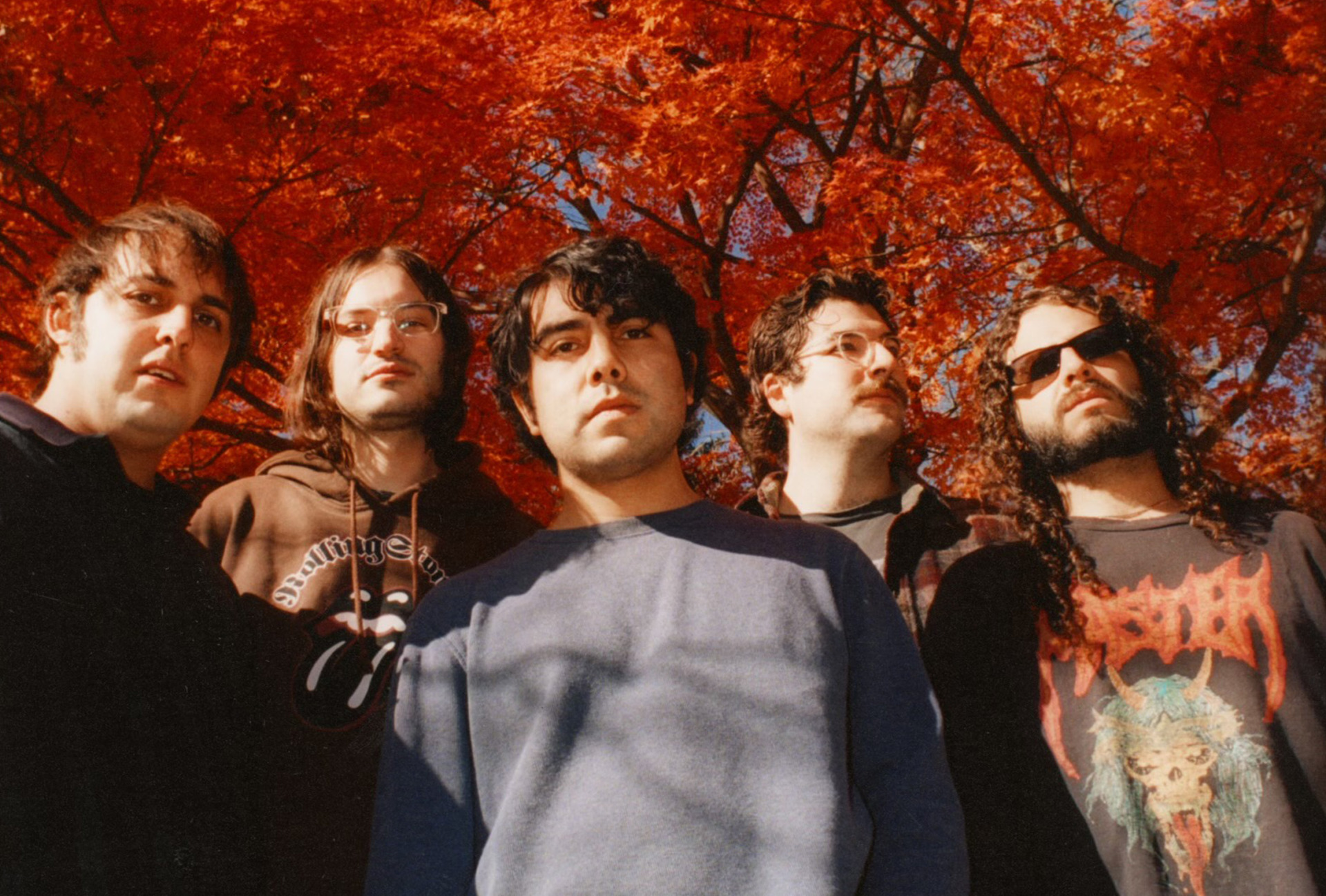
Editor's Choice: The Evil That Men Do

…
The problem with cliches lies rarely in their meaning. “Don’t look down”: decent advice for a high-wire act. “Hope springs eternal”: a nice reminder to be optimistic. “Their old stuff is better”: likely true. In reading those phrases, what makes your eyes roll isn’t the underlying message, but the unoriginal vessel delivering the message. The more you run across a specific collection of words, the less they stand out and, subsequently, the less they mean.
You’ve probably experienced this in music, too. How many stagnant variations on the “Two Minutes To Midnight” riff have you heard? Maybe the breakdown at the end of “Domination” knocked you on your ass, but the countless songs which emulate that trick hardly register. Negative tropes, those which made your nose curl upon first listen, also have a way of losing their novelty. When was the last time you heard someone mount a full-throated attack on auto-tune? The effect has only spread further in recent years, but in becoming so commonplace has it slipped into the background. It’s just the way things are now.
So, how do we bring the useful truth beneath a cliche back to the surface? One trick I’m fond of is swapping out the verb for something more evocative. Let’s try the exercise with a cliche that seems apt these days: “power corrupts.” Pretty good, but it doesn’t quite have an urgency appropriate to our times, so let’s go with this, instead: “power rots.”
It corrodes. It hollows out what was once living and fills the space with an amoral mush, withering empathy, consideration, and virtue in the process.
This past month has been like stripping the bark off of a fallen log to reveal a putrid core. On October 5th, Buzzfeed reported that, in addition to acting as a mouthpiece for white supremacists, Milo Yiannapolis also received tips from media members working for ostensibly liberal institutions. The story was published almost concurrently with the accusations of sexual assault, harassment, and rape against Harvey Weinstein. The two stories don’t intersect, but together they form a consistent reminder that those in power will gleefully abuse it, and those who crave power, like the careerist journalists that fed stories to Yiannopoulos, will sell their morals in order to remain buddy-buddy with other climbers.
After the first wave of accusations there came another, then another, and another. More bark was stripped, and more survivors stepped forward to “out” other abusers in the art world. Twiggy Ramirez, Lars Von Trier, Matt Mondanile (formerly) of Real Estate, Ethan Kath of Crystal Castles, Oliver Stone, Terry Richardson, Kevin Spacey… the list goes on. Shortly thereafter, Decapitated were formally charged with multiple counts rape on a case which surfaced prior to the Weinstein leaks. This barely scratches the surface. The fact that I cannot name all of them is a testament to how widespread the culture of sexual abuse is in both the world of music and art, and society as a whole. It wasn’t just one log that had rotted, it was the whole forest.
For roughly half of the world, this is not news. Metaphors and cliches, even those true at their core, pale against real experience. If this has served as an eye-opening moment for you, shock isn’t a viable option. The monsters are real. Not zombies breaking into our homes or masked man lurking in the woods but in the hearts of those who’ve trusted to tell our stories.
Rot spreads. There’s an A Silver Mount Zion lyric which reads, “When the world is sick/can’t no one be well.” When those in power live cruelly, the world takes on their shape and a cruel world permits more of the same. It becomes so normalized that, despite countless stories of the “casting couch,” or green room escapades, we tune it out. We hear those stories and we don’t consider the human cost nor the voices silenced. We autotune the notes we don’t want to hear. It’s just the way it is.
It doesn’t have to be this way, but any change will require us recognizing how we, ourselves, are rotting. What have we, in the metal community and in our daily lives, turned a blind eye to? Whose side of the story have we ignored in order to maintain the status quo? Whose intentions have we trusted despite warnings to the contrary?
I won’t pretend to have the answers, or to even be immune to the rot myself, but giving in to despair or accepting the world for the way it is only provides dampness and heat for the rot to spread. Metal, to me, is about looking directly into the darkness and recognizing it is both real and defeatable. After all, hope springs eternal.
…
Martin Strickler passed away at the age of 50 on October 21st. You might know him better as Martin Eric Ain, the bassist for both Hellhammer and Celtic Frost. In his collaboration with Tom G. Warrior, Ain had a profound impact on heavy music as we know it. My own words would pale next to those of Warrior himself, so I’ll keep it short. In addition to being responsible for much of Celtic Frost’s thematic interest in the occult, and much of their bass playing, Ain was also a fearless backing vocalist. If the song needed him to sing in a faux-operatic falsetto, then, by golly, he was going to sing the shit out of that faux-operatic falsetto, and if he need to take the center stage, he was more than willing to bare his soul in the process. Celtic Frost had a vision for their music and worked tirelessly to realize it. That alone would make them admirable, but the fruits of their labor also happen to be among the most vital in heavy metal. RIP. Ain Elohim.
…
…
The closer we get to the release of The Dusk In Us, the more I find myself fascinated with Converge’s decision to not include “Eve” on their upcoming record. They obviously like the song, otherwise we wouldn’t be hearing it, but their choice to release it as a b-side on the I Can Tell You About Pain is an interesting look into their editing process. What didn’t work about “Eve?” The song’s mix of apocalyptic resignation and explosive energy is as a part of The Dusk In Us as “I Can Tell You About Pain”‘s brainy hardcore. My guess: the song was cut for pace, not quality control. “Eve” demands a lot of gravity in an album. This same magnitude means it is fully capable of standing on its own, a wonderful addition to the canon of Converge slow jams.
…
…
If your tastes trend faster, try Grit Teeth’s Let It Be. This Icelandic group’s new record is a joy; searingly hot metallic hardcore borrows a bit of fire from their country’s recently rising black metal scene. It’s best experienced as a single burst of pure adrenaline, but if you needed some kindling to get you started, I’d go with “Pointless/Worthless”. The song shows off the band’s comfort with a variety of neck snapping tempos before ending in a hideous largo.
…
…
The most eye-catching credit on Aseitas’s “City of Stone” is Dysrhythmia and Gorguts guitarist Kevin Hufnagel, and, sure, he gives a characteristically inventive performance at the song’s climax. One incredible solo can only take you so fair if the music underneath isn’t up to snuff, but Aesitas have nothing to worry about on that account. This first song from their upcoming full length debut returns some of djent’s techniques, its rhythmic logic and dynamic sensibilities, to their extreme metal roots. The band would feel at home next to many modern day Gorguts acolytes, but they groove much harder. By the time Hufnagel shows up, Aseitas have established a shuddering motif drummer Zach Rodrigues molds like silly putty. It’s both cosmic and corporal, a promising blend for their work to come.
…
…
I premiered a track from Hällas’s Excerpts From A Future Past back in August, and I haven’t stopped thinking about it since. It ticks so many of the boxes for what I love about 70s metal and prog without sounding like a pastiche. My current obsessions from the record are “Repentance” and “Star Rider.” The former has an exhilarating bridge that runs through a dizzying array of harmonized guitar lines. The latter takes that same righteous guitar sound and pairs it with a groove just a hair under disco tempos for a soulful hook and a “nerds-at-the-beer-hall” chorus. You can keep Stranger Things. This is the soundtrack my young, fantasy game playing days never knew they were missing.
…
…
Frankly, it’s been hard to get into the holiday spirit when the world feels especially monstrous. Cool goth dad Trent Reznor to the rescue. Reznor and long time composing partner Atticus Ross, fresh off their incredible score for Ken Burn’s Vietnam documentary, are here to show you punks how to update John Carpenter’s aesthetic for 2017. Happy Halloween.
…
…











